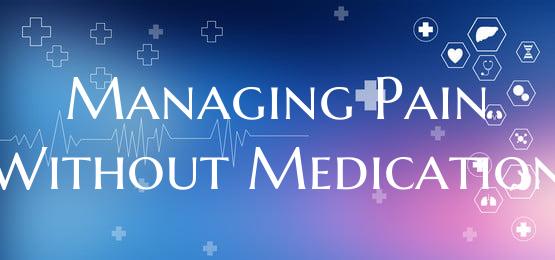
Managing Pain Without Medication
Living with chronic pain can be difficult, but there are alternative methods to manage and reduce pain without relying solely on medication. By incorporating various strategies and techniques into your daily routine, you can find relief and improve your quality of life. Below are some effective ways to manage pain without medication:
1. Mindfulness Meditation: Practicing mindfulness meditation can help you become more aware of your body and emotions. By focusing on the present moment and observing your pain without judgment, you can learn to cope with discomfort more effectively.
2. Physical Therapy: Engaging in physical therapy sessions can help improve flexibility, strength, and mobility, reducing pain and preventing further injuries. A physical therapist can create a personalized exercise plan to target specific areas of pain and help you build a stronger body.
3. Acupuncture: Acupuncture is a traditional Chinese therapy that involves inserting thin needles into specific points on the body. This practice is believed to help restore the body's balance and promote natural healing processes, thereby reducing pain and discomfort.
4. Heat and Cold Therapy: Applying heat or cold packs to the affected area can provide relief from muscle soreness, inflammation, and stiffness. Heat therapy can help relax muscles and improve blood flow, while cold therapy can reduce swelling and numb pain.
5. Yoga and Tai Chi: Practicing gentle forms of exercise like yoga and Tai Chi can help improve flexibility, balance, and strength while reducing stress and tension in the body. These mind-body practices have been shown to be effective in managing chronic pain conditions.
6. Massage Therapy: Regular massage sessions can help alleviate muscle tension, improve circulation, and promote relaxation. A skilled massage therapist can target specific areas of pain and release tight muscles, providing relief and comfort.
7. Breathing Techniques: Deep breathing exercises can help reduce stress, tension, and pain by promoting relaxation and calming the nervous system. By focusing on your breath and practicing mindful breathing, you can soothe both the body and mind.
8. Cognitive Behavioral Therapy (CBT): CBT techniques can help you change negative thought patterns and behaviors that may contribute to pain perception. By addressing and modifying unhelpful beliefs about pain, you can learn to cope with discomfort more effectively.
Incorporating a combination of these non-medication strategies into your pain management plan can help you better control and reduce your pain levels. It's essential to work closely with healthcare providers, such as physical therapists, acupuncturists, and other specialists, to develop a comprehensive and personalized approach to managing pain effectively. Remember that everyone's experience with pain is unique, so it may take some trial and error to find the techniques that work best for you. By being patient and persistent, you can improve your quality of life and find relief from pain without relying solely on medication.